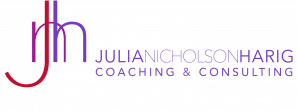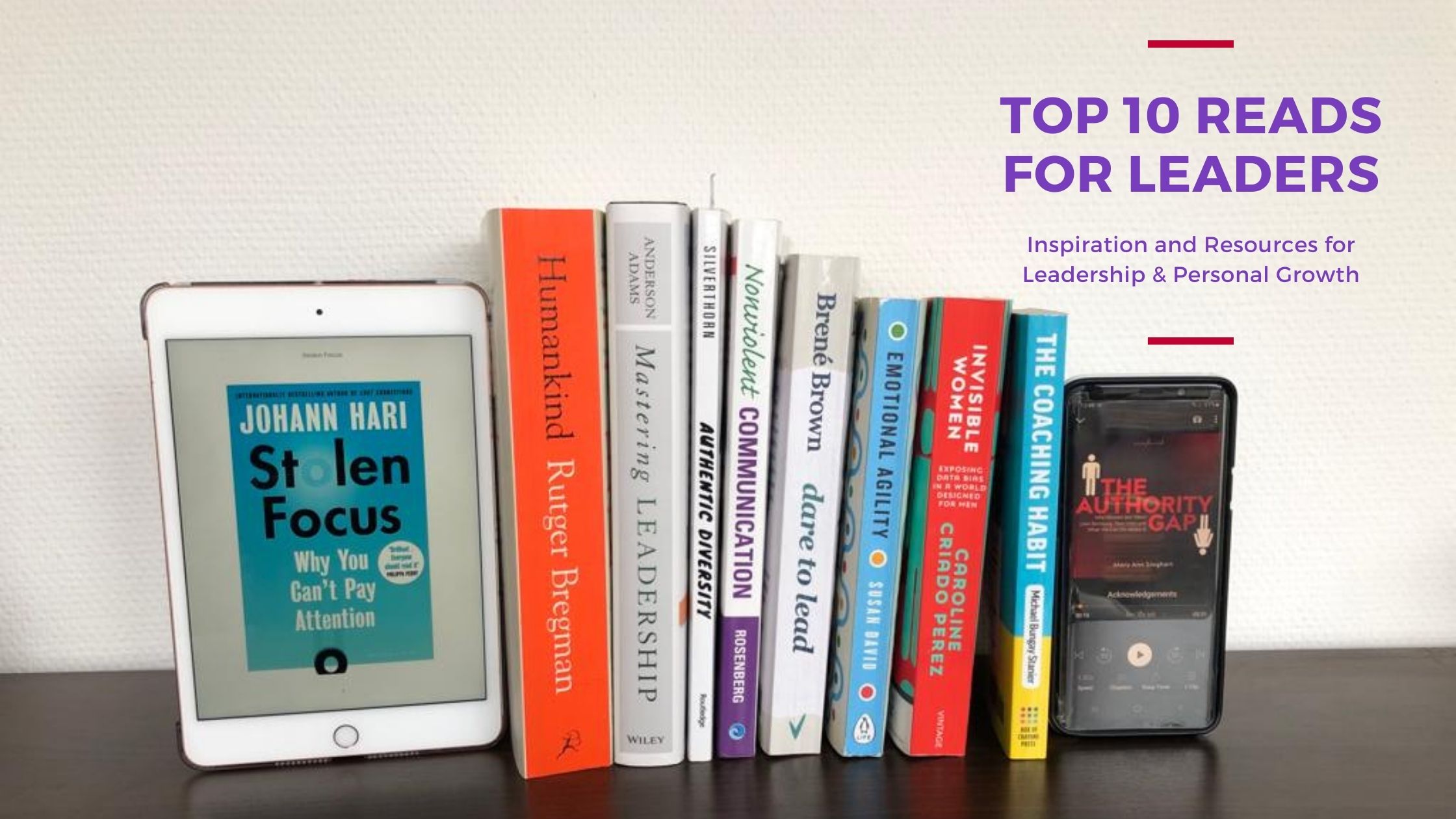Hello Friends!
As former US President Harry Truman famously said, “Leaders are readers!”
One thing many of the most influential and successful leaders have in common is how much they read. [Unfortunately, this article only lists male leaders – I apologize for the lack of gender diversity!] Those leaders often credit their success directly back to the fact that they do read so much. There’s a power to the written word, and seeing the data to back up theories, discoveries, and new insights is incredibly impactful.
I try to read at least one non-fiction book per month. My To-Be-Read pile does not seem to be getting any smaller though! 😉 There are just too many interesting books out there!! A friend recently suggested we take a “reading sabbatical” – a month off just to read, and that sounds just dreamy to me!
Over the past several years, some of the books I’ve read have really stood out for their insight, their teaching, and their impact on my coaching. These are the books that I continually recommend to clients, and that my clients have also really found valuable.
So here it is, my own personal recommendations for the Top 10 Reads for Leaders!!!
As they are all equally brilliant reads, I’ve listed them in alphabetical order. It wouldn’t be possible to list them in order of preference: they are all well worth reading!
AUTHENTIC DIVERSITY
Title: Authentic Diversity: How to Change the Workplace for Good
Author: Michelle Silverthorn
A favourite passage:
“People are not widgets. Identities are not commodities. Inclusion is not a line item in your financial report. […] You want to know why diversity and equity leaders have such high turnover rates? Because companies spend so much time on strategy and so little time on the hard work of change.”
Why you should read it:
While Diversity & Inclusion may at times feel like the ‘flavour of the month’, there truly is a massive benefit to all of us in embracing it. According to the American Sociological Association, “companies with the highest levels of racial or gender diversity brought in nearly 15 times more sales revenue than those with the lowest.” D&I is truly good for ALL of us!!
And it is active, real change that is really needed. Michelle Silverthorn has written a very direct, practical, and insightful book into the impact and power of Authentic Diversity.
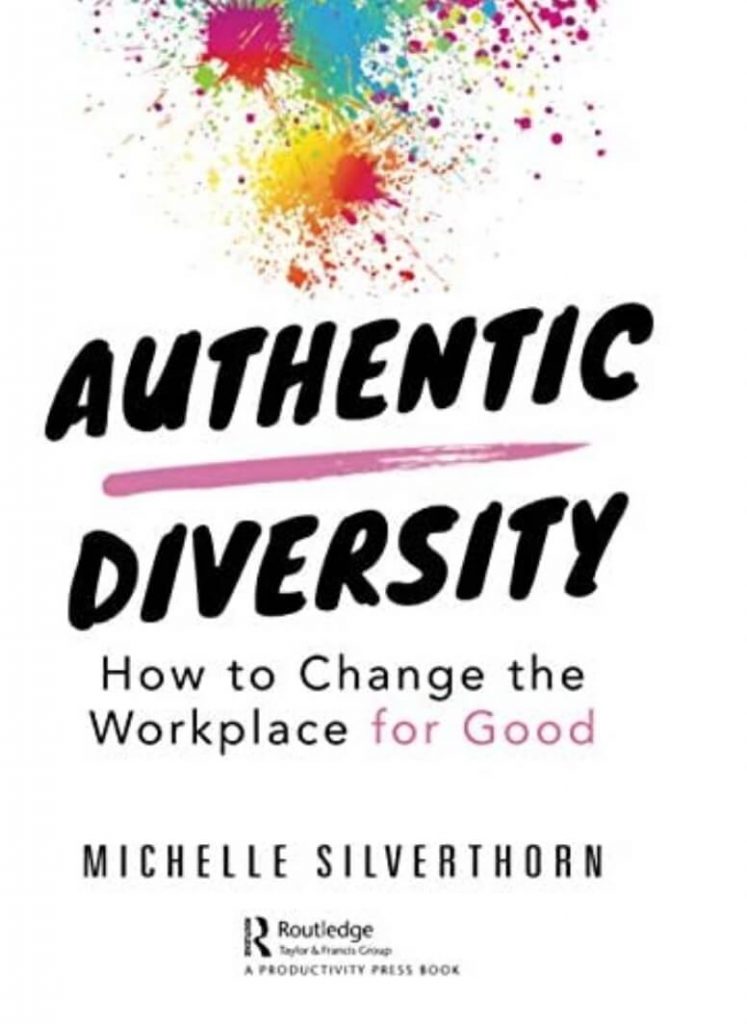
DARE TO LEAD…
Title: Dare to Lead: Brave Work. Tough Conversations. Whole Hearts.
Author: Brené Brown
A favourite passage:
“The reason we roll our eyes when people start talking about values is that everyone talks a big values game but very few people actually practice one. It can be infuriating, and it’s not just individuals who fall short of the talk. In our experience, only about 10% of organizations have operationalized their values into teachable and observable behaviours that are used to train their employees and hold them accountable.”
Why you should read it:
Authenticity, Courage, Vulnerability, Values – Brown discusses how impactful and essential these all are for true leadership. But she doesn’t just tell the reader that they’re necessary. She first backs up her research with a lot of study and relevant examples. And then – and this is what really makes this particular book one of my all-time leadership favourites – she details what the behaviours are that make these characteristics happen. It isn’t a book about the theory of leadership. It’s a practical and highly applicable toolkit for leadership skills. Brilliant!
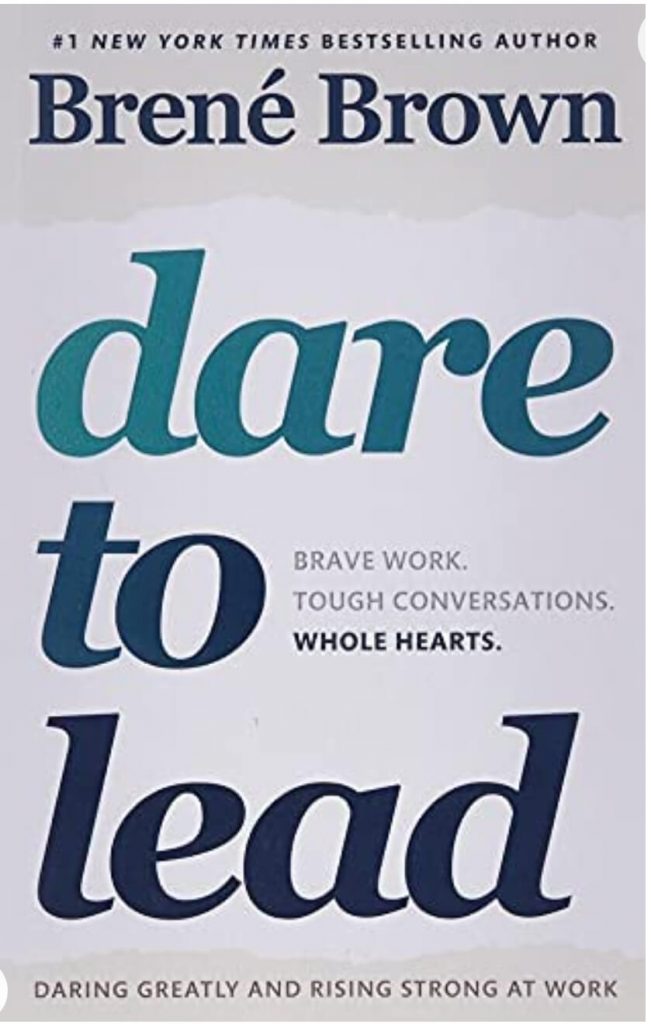
EMOTIONAL AGILITY…
Title: Emotional Agility: Get Unstuck, Embrace Change, and Thrive in Work and Life
Author: Susan David, PhD
A favourite passage:
“We look around to check out what other people are doing, mindlessly choosing things we’ve been told are universal keys to satisfaction, such as a university education, home ownership, or having children. In fact, these are not for everyone. It’s just a lot faster and easier to follow what we see than it is to work it out for ourselves.”
Why you should read it:
As someone who is very interested in emotional intelligence and growth mindset, the title of this book grabbed me, in that it seemed to me to be a combination of the two. I originally borrowed this book from the library, only to realize within a few pages that this book was incredible and that I would want to have my own copy.
And my copy is dog-eared and highlighted within an inch of its life! The concepts are just so real. For me, the realization that there are 7 basic human emotions [joy, surprise, fear, anger, sadness, disgust & contempt] but that only *1* is “positive” was transformative in how I think about emotions. It has made a massive difference in my understanding of emotional intelligence, and in how I approach emotions. They are data – emotions are giving us critical information. We didn’t evolve to have most of our basic emotions be “negative” without them being essential sources of information for us.
This book really opened my eyes to an entirely different approach to emotions, both in myself and also in my coaching. Using the concept of emotions as data has allowed a lot of my clients to be more comfortable with addressing their feelings and brainstorming around what information that emotional data is giving them.
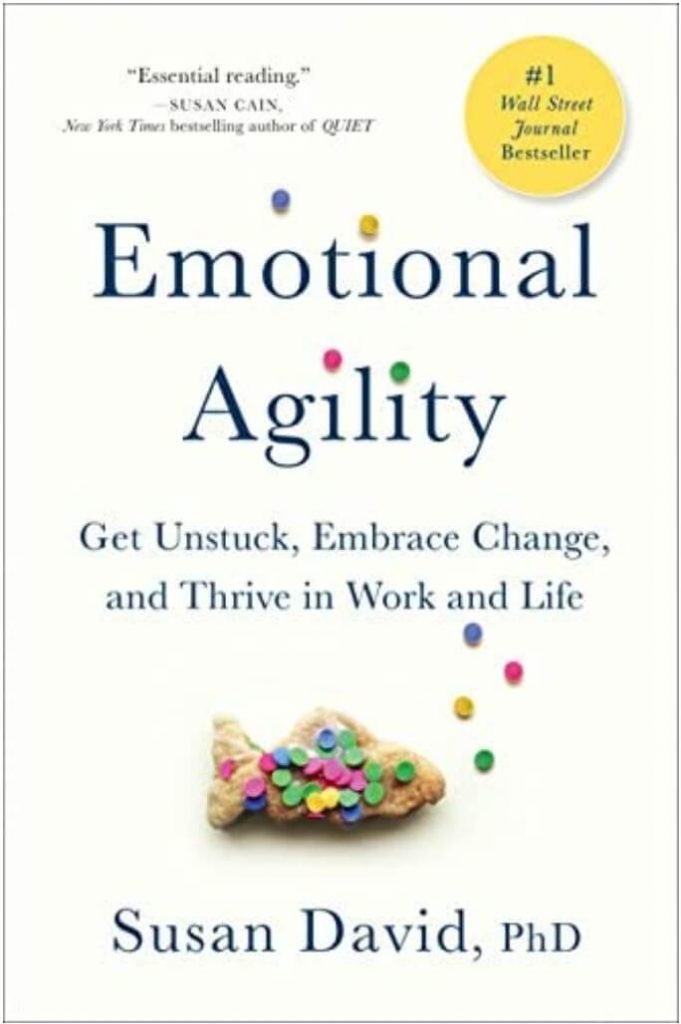
HUMANKIND…
Title: Humankind: A Hopeful History
Author: Rutger Bregman
A favourite passage:
“We have whites in our eyes. This unique trait lets us follow the direction of other people’s gazes. Every other primate, more than two hundred species in all, produces melatonin that tints their eyes. Like poker players wearing shades, this obscures the direction of their gaze.”
Why you should read it:
Bregman’s concept of “homo puppy” – humans just want to be liked, and we have excelled as a species precisely because we are so social and caring – is a novel one. The book is filled with fascinating examples not only of how people can be kind and caring towards one another, but explains through that lens why exactly it sometimes happens that we are not. Really thought-provoking and very readable. Particularly when the world seems a bit overwhelmingly negative at the moment, it was encouraging to read that our innate nature is, in fact, good.
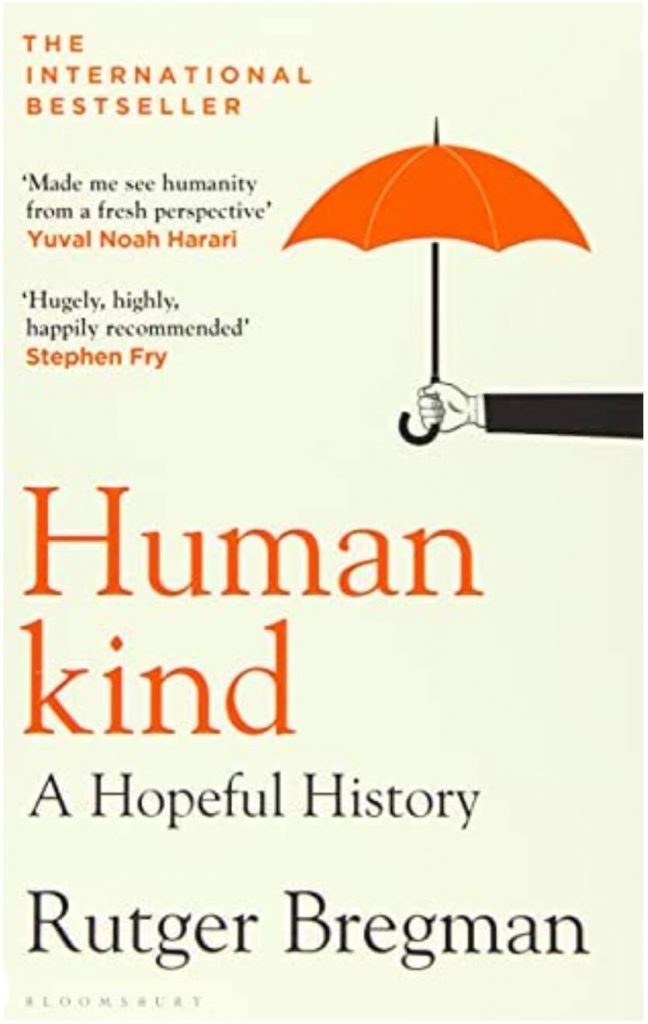
INVISIBLE WOMEN
Title: Invisible Women: Exposing Data Bias in a World Designed for Men
Author: Caroline Criado Perez
A favourite passage:
“Invisible Women is the story of what happens when we forget to account for half of humanity. For too long, we have positioned women as a deviation from standard humanity and this is why they have been allowed to become invisible.”
Why you should read it:
It is fascinating, disturbing, shocking, unbelievable, disheartening, and brilliantly written. Some of it details obvious data gaps. (Although surprisingly and embarrassingly, few are indeed obvious.)
But for the most part it is truly eye-opening to realize how much using “man” as the norm harms and negates women. This really should be required reading for everyone! Especially anyone who is, should, or wants to be an ally to women.
(Caroline Criado Perez not only wrote a brilliant book, but also publishes a really insightful weekly newsletter and is very vocal and informative about the data gap between men and women. It’s one of the few newsletters I actually read in its entirety each week and really look forward to receiving!)
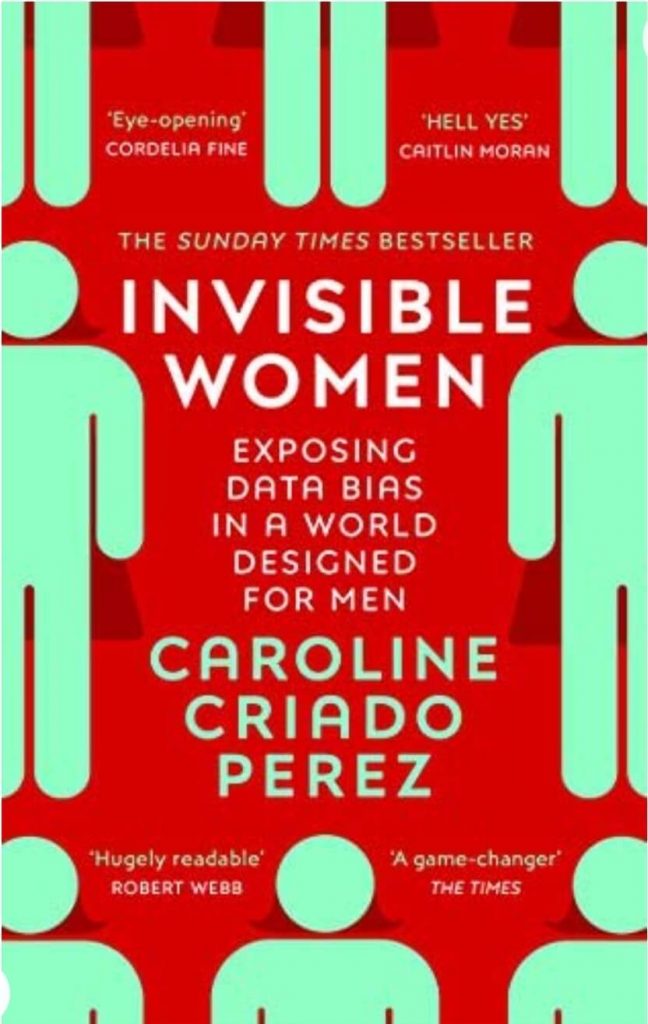
MASTERING LEADERSHIP
Title: Mastering Leadership: An Integrated Framework for Breakthrough Performance and Extraordinary Business Results
Author: Robert J. Anderson and William A. Adams
A favourite passage:
“Competence is necessary to attain and be effective in senior roles; however, competence alone is insufficient. When we describe great leadership, we describe something beyond skill, capability and competence. We use words like integrity, honesty, passion, vision, risk-taking, fearlessness, compassion, courage, authenticity, collaboration, self-awareness, selflessness, purposefulness, humility, intuition, and wisdom.
Great leadership is connected with the deepest parts of ourselves. It has more to do with character, courage, and conviction than it does with specific skills or competencies. Leadership requires wisdom, self-knowledge, and character development at psychological and spiritual levels.”
Why you should read it:
Well for starters, it means being aware of where we are now in our leadership, and what skills we need to acquire and/or improve!
Diving into the competencies and behaviours that correlate to leadership effectiveness is eye-opening, enriching, motivating, and so interesting. And the principles and concepts of Leadership Effectiveness are deeply researched and laid out in this brilliant book.
I read a lot of books in this genre, and to be honest, I find a lot of them prohibitively dry. This book however really exceeded my expectations. I think I highlighted something on every other page! The book goes into really fascinating depth around what characteristics and behaviours are most closely tied to leadership effectiveness and business performance, and which of our characteristics can get in our way. It’s neuroscience, developmental psychology, business administration, and management training all rolled into one. It should be required reading for all leaders!
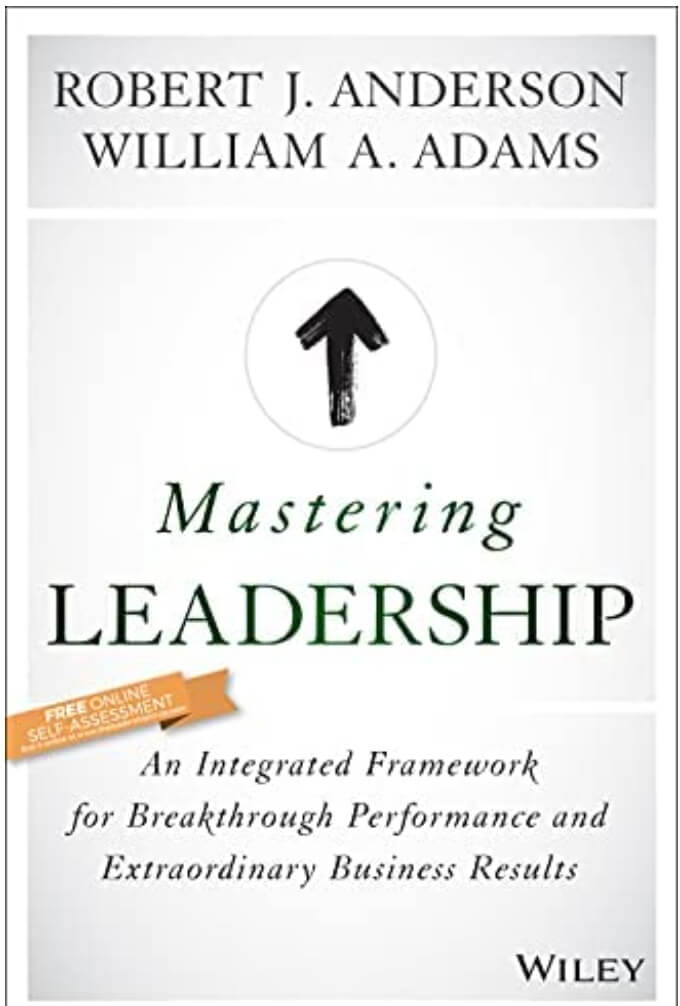
NON-VIOLENT COMMUNICATION
Title: Nonviolent Communication: A Language of Life
Author: Marshall B. Rosenberg, PhD
A favourite passage:
“While we may not consider the way we talk to be ‘violent,’ words often lead to hurt and pain, whether for others or ourselves.”
Why you should read it:
Leading in a Post-Pandemic, You4.0 World means communicating. As we are really seeing around us, words matter. Being able to express yourself, with clarity, empathy, and authenticity is a critical skill in a world where many workers are remote, teams are virtual, and diversity and inclusion means we can no longer rely solely on shared experiences and culture to create rapport.
I really enjoyed this book – it is an engaging read, full of very practical and helpful role plays, questionnaires, and examples of how – and how not – to communicate. Really a must for anyone wishing to be a better communicator!
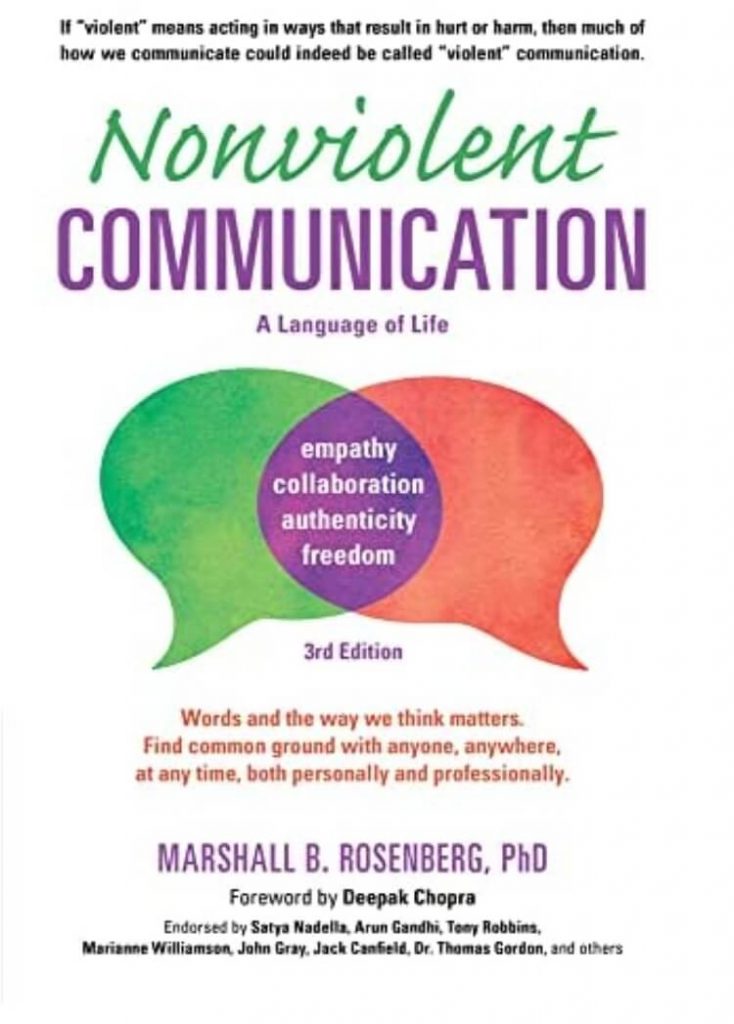
STOLEN FOCUS
Title: Stolen Focus: Why You Can’t Pay Attention
Author: Johann Hari
A favourite passage:
“A study found that ‘technological distraction’ – just getting emails and calls – caused a drop in the workers’ IQ by an average of 10 points. To give you a sense of how big that is: in the short-term, that’s twice the knock to your IQ that you get when you smoke cannabis. So this suggests in terms of being able to get your work done, you’d be better off getting stoned at your desk than checking your texts and Facebook messages a lot.”
Why you should read it:
I think we all have a vague sense that our focus isn’t as strong as it might be, and are most probably aware that we spend a bit too much time on our devices. Hari delves into whether this is true (spoiler alert: it is!) and what is causing it.
It’s a fascinating look into the world of psychology and technology, and how the most significant contributor to our lack of focus is in fact the systemic change that has taken place over the last few decades in terms of technology and how those creating it want us to use it. It isn’t just a case of each individual not having the willpower to spend more time on their phone.
What I also found really interesting was the concept that “multitasking” was originally a term used for a computer that had multiple processors and that humans – who only have one “processor” (i.e. brain) are NOT capable of multitasking. We think we are, but we are in fact juggling tasks. And the distraction that causes, and the lack of deep thought involved in jumping back and forth from task to task is far more detrimental to our focus and attention than we think.
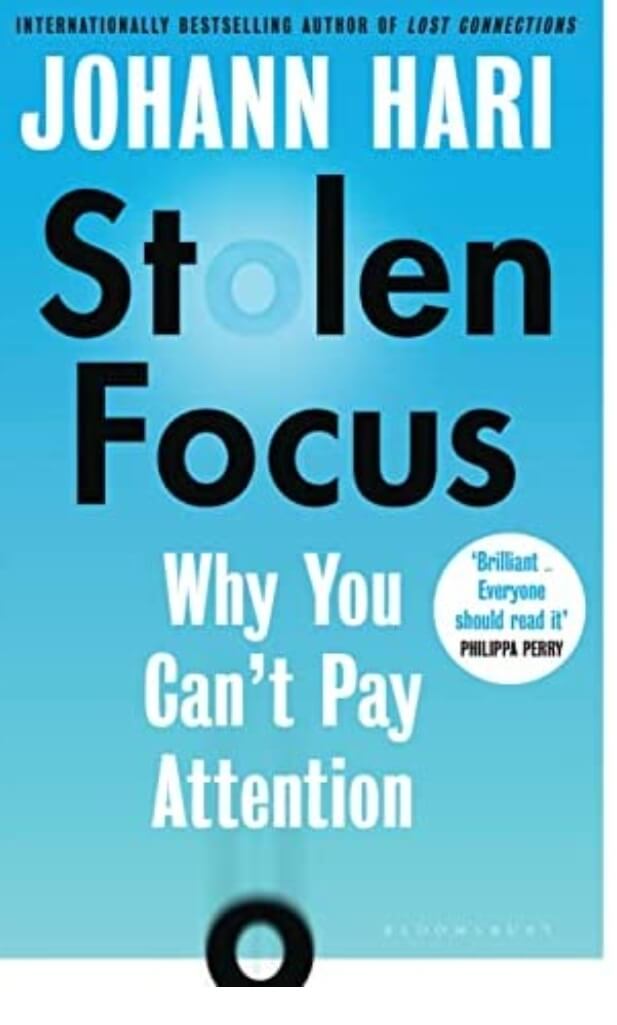
THE AUTHORITY GAP
Title: The Authority Gap: Why Women Are Still Taken Less Seriously Than Men, and What We Can Do About It
Author: Mary Ann Sieghart
A favourite passage:
“One consequence of the Authority Gap is that women are held to higher standards. This means that employers are often losing out on under-promoted female talent. So they, too, have a lot to gain from narrowing the gap. […] Women outperform men. For instance, houses listed by female estate agents sell for higher prices, female lawyers are less likely to behave unethically, and patients treated by female doctors are less likely to die or be readmitted to hospital.”
Why you should read it:
Although we hear the term “unconscious bias” everywhere nowadays, we rarely take a deeper dive into what unconscious biases we actually do have. On a superficial level, and an individual one, we might. But how often do we investigate our cultural and systemic unconscious biases? Is there even such a thing?
Sieghart has written a powerful book about where our systemic unconscious bias comes from that men are leaders and have authority, and women are not and do not, and how this came to be. For example, boys in school are given 8 times the talking time and teacher’s attention that girls are. Thereby establishing from a very young age that men are leaders and should be listened to, and women should be quiet and leave the authority to men.
The book could have come across as challenging to men, but in fact it points out all that men have to gain (a considerable amount as it turns out!) by helping women gain equal authority.
For anyone who is or wants to be an ally or to actually take action towards diversity & inclusion, this is a brilliant place to start!
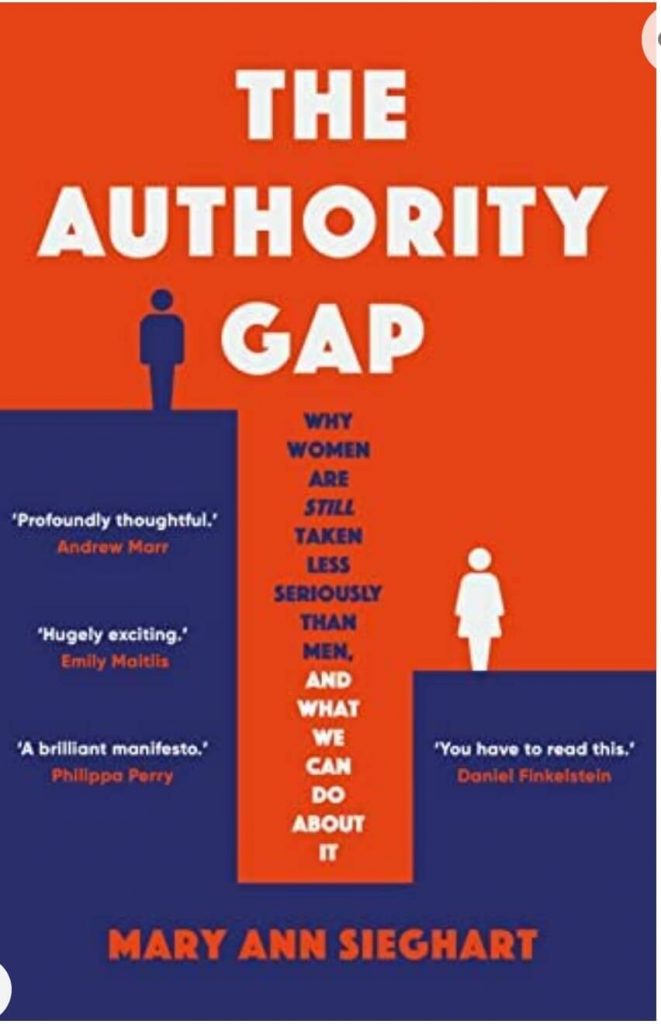
THE COACHING HABIT
Title: The Coaching Habit: Say Less, Ask More & Change the Way You Lead Forever
Author: Michael Bungay Stanier
A favourite passage:
“An almost fail-safe way to start a chat that quickly turns into a real conversation is the question, ‘What’s on your mind?’
And the strategic question: ‘If you’re saying yes to this, what are you saying no to?’
Why you should read it:
If you’ve been wanting to think a bit more about your leadership style, and if you’ve been hearing that you should add some coaching to your skill repertoire, this is the book for you. It is written in a really laid-back, easily digestible style and is focused on the 7 main coaching questions Stanier thinks everyone should use. This book is great bang for your buck. A quick read but with significant impact.
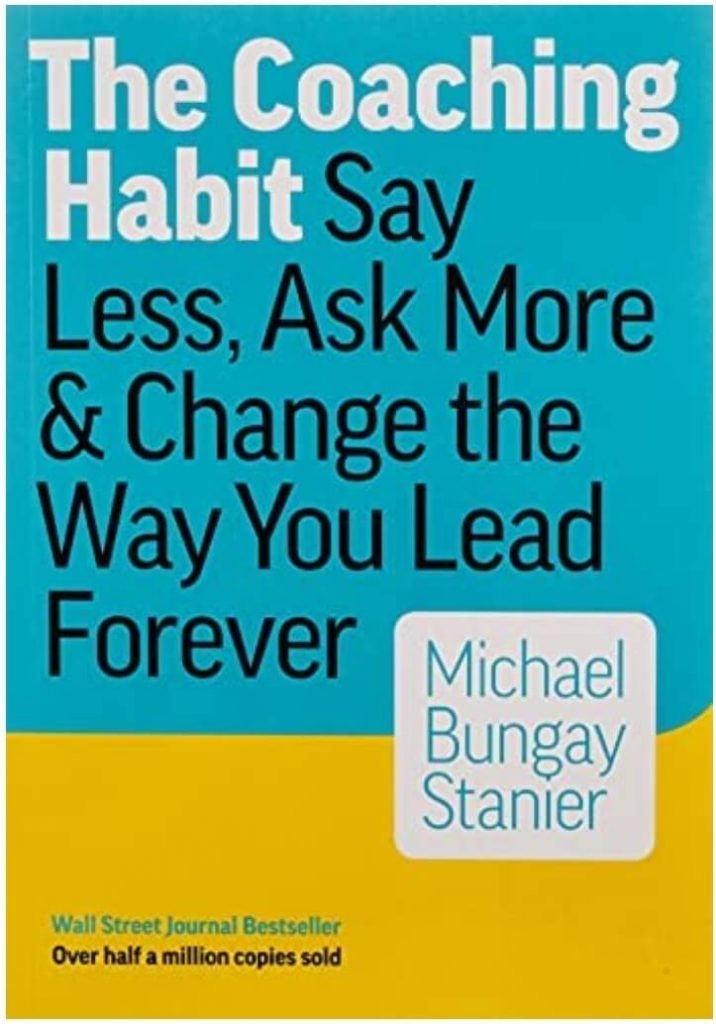
I would love to know which of these recommendations speak to you!
And which books you would add to the list! I’ll publish your recommendations in the next newsletter to add to our Leaders Are Readers Collection.
For those of you who celebrate, I wish you a wonderful Easter weekend!
And to all, I hope you are having a beautiful Spring.
Wishing you all health, safety, and love.
Hugs,


